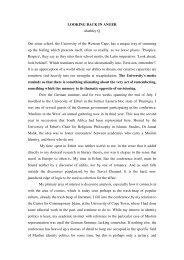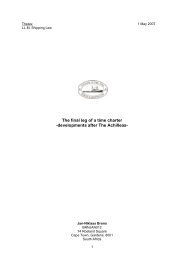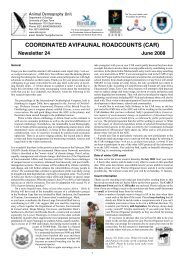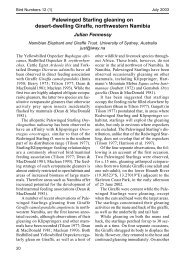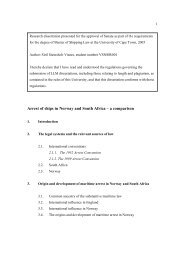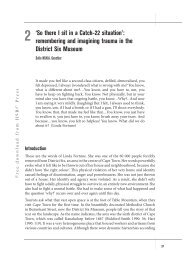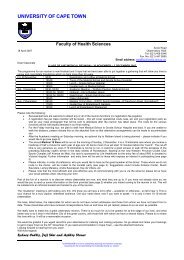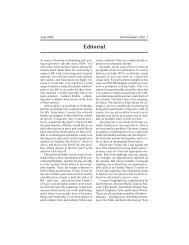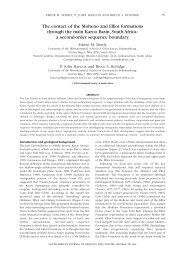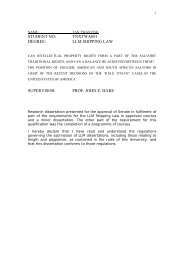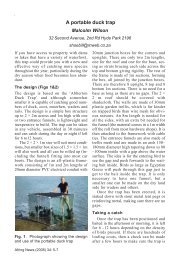insanity.pdf
insanity.pdf
insanity.pdf
Create successful ePaper yourself
Turn your PDF publications into a flip-book with our unique Google optimized e-Paper software.
Africa 9<br />
distinctions are not central to legal deliberations because the court is<br />
concerned with whether the accused met the criteria for the legal test and not<br />
with the nature of the mental state. Petty (1998) feels that the lack of<br />
conceptual clarity and the fact that the defences can be raised in the<br />
alternative, present challenges for the psychologist. Consequently, the<br />
boundaries between the defences are blurred, resulting in ‘an anomalous,<br />
circuitous process whereby the court applies the test for criminal capacity...’<br />
(Petty, 1998, p. 4).<br />
Diminished Responsibility<br />
South African law, in line with Anglo-American jurisdictions,<br />
acknowledges that there are varying degrees of criminal responsibility. As a<br />
result, Section 78(7) of the Criminal Procedure Act (51 of 1977) states that:<br />
If the court finds that the accused at the time of the commission of the<br />
act in question was criminally responsible for the act but that his<br />
capacity to appreciate the wrongfulness of the act or to act in accordance<br />
with an appreciation of wrongfulness of the act was diminished by<br />
reason of mental illness or mental defect, the court may take the fact of<br />
such diminished responsibility into account when sentencing the<br />
accused.<br />
In terms of this provision, the accused may be suffering from some form of<br />
mental illness but the level of impairment experienced does not fulfil the<br />
requirements for the legal test of <strong>insanity</strong>. The pathology is then considered to<br />
be a mitigating factor in the degree of responsibility. A defence of diminished<br />
responsibility does not afford the accused complete exculpation, but may<br />
result in a reduced sentence instead of indefinite confinement to a state<br />
psychiatric hospital (Snyman, 2002).<br />
Controversy<br />
It stands to reason that expert testimony is required to establish that an<br />
abnormality of the mind existed at the time of the offence. However some<br />
English legal commentators have questioned the role which psychiatrists and<br />
psychologists play in assessing diminished responsibility. In a report by the<br />
Butler Committee on Mentally Abnormal Offenders (cited in Clarkson and<br />
Keating, 1990), the proficiency of such experts in<br />
assessing degrees of mental responsibility was<br />
questioned, since this is a concept of law and morality<br />
and not of psychiatry or psychology. The Committee<br />
questioned whether the accused’s ability to conform to<br />
the law could be measured clinically given that the law requires a substantial<br />
impairment of mental responsibility. Allen argues that ‘ the question of<br />
substantial impairment is inappropriate for medical witnesses as it is one of<br />
degree and whether it exists depends not only on the medical evidence but on<br />
all the evidence of the case relating to the facts and circumstances of the<br />
killing’ (1995, p. 128). He argues that the courts have allowed expert opinion<br />
in these matters so as to produce a greater range of exemptions from murder.<br />
Activity 8.78.<br />
Discuss the elements of the defence of<br />
diminished responsibility



